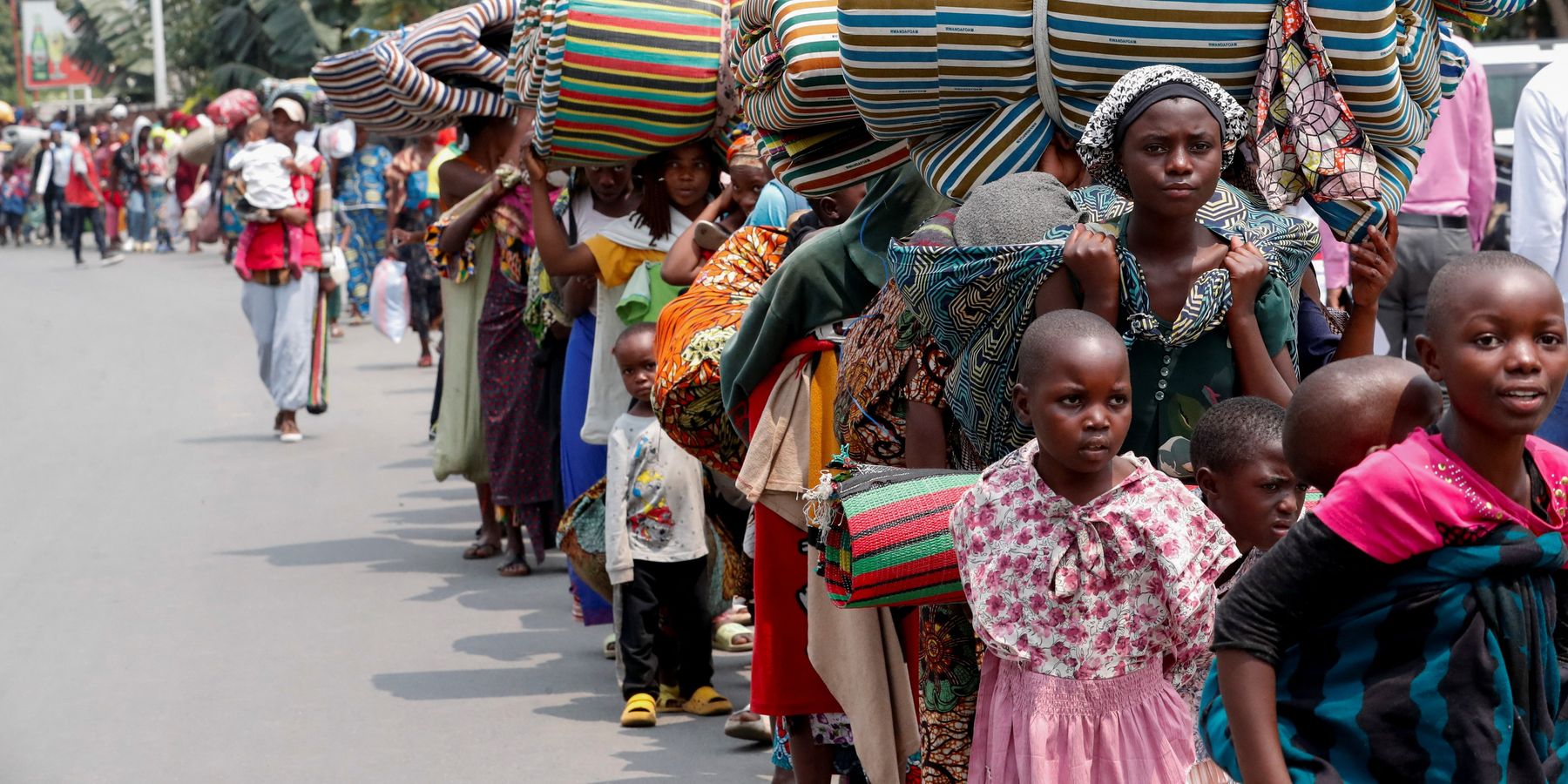Reports on Friday suggest that the Democratic Republic of Congo (DRC) and Rwanda — which is backing the rebel group M23, the main armed rival to the DRC in a war that has ravaged the DRC’s east for years — have submitted drafts for a preliminary peace accord to end the war.
Friday’s news comes a week after the foreign ministers for both the DRC and Rwanda met in Washington in a ceremony hosted by Secretary of State Marco Rubio for the signing of a Declaration of Principles, which served as a commitment from each country to move towards a sustained peace agreement. That declaration set today as the deadline for drafts to be submitted for a preliminary accord between the two countries — today’s news suggests this deadline was met.
During the ceremonial conference in Washington on April 25, Rubio said that the USengagement with the two rival governments on the peace effort is part of President Trump’s “prosperity agenda for the world.”
The Trump administration has played a positive role in moving this conflict a few steps closer to a peaceful resolution. President Trump placed Massad Boulos as his Senior Advisor for Africa last month, a position which includes working on leading the president’s effort to end this war. Boulos has been serving as the American representative in the ongoing Qatar-led peace talks, and has participated in the mediation efforts.
Boulos’ work has seemingly paid off. During the April 25 press conference in Washington for the signing of the Declaration of Principles, the foreign ministers of both the DRC and Rwanda thanked Boulos for his role in advancing dialogue around peace. The DRC’s foreign minister said Boulos’ “extensive consultations across the region have brought nuance, depth, and humanity in this process. And [his] presence today underscores that diplomacy must listen, understand the lived experiences of those most affected and seek durable solutions.”
The DRC and the Alliance Fleuve Congo — which is the political body of the M23 — agreed on April 23 in a joint declaration to a truce in the fighting and underscored that “both parties reaffirm their commitment to an immediate cessation of hostilities, a categorical rejection of any hate speech, intimidation, and call on all local communities to uphold these commitments.” Although the temporary truce was broken just a few days later when fighting resumed in the South Kivu province, it appears as though this has not derailed negotiations.
In the Washington event last week, Rubio highlighted U.S. economic interests in securing peace in the region, saying that American “firms are good corporate citizens … and they’ll bring good governance and ensure responsible, reliable supply chains for things like critical minerals that benefit regional governments and our partners and allies as well.”
In an interview with Reuters, Boulos said that he is anticipating a final, permanent peace deal to be signed between the DRC and Rwanda in Washington in about two months.
The U.S. has an interest in achieving peace in the region — access to the vast mineral wealth in and around the warzone. In his interview with Reuters, Boulos said the United States is currently in the process of finalizing bilateral economic agreements with both Rwanda and the DRC, and hopes these agreements will be signed on the same day as the peace deal.
"The (agreement) with the D.R.C. is at a much bigger scale, because it's a much bigger country and it has much more resources, but Rwanda also has a lot of resources and capacities and potential in the area of mining as well ... not just the upstream, but also midstream and downstream to processing and refining and trading," Boulos told Reuters.
He also said the U.S. will join France, Qatar, and Togo, which will represent the African Union, in forming a committee to review the progress of the peace deal.
News of this tentative peace agreement comes on the heels of the M23 rebel group successfully advancing across the eastern portion of the DRC. In late January, the group overpowered the Congolese military and allied militias to capture the major city of Goma. The M23 then moved southward and conquered the city of Bukavu, the capital of the South Kivu province.
Previous efforts to broker a lasting deal between the two sidesfailed to move the needle. An effort by Kenya in 2022 brought some peace between rebel groups and the DRC, but failed to end the conflict with the M23. Angola had been working to broker a peace deal between the various parties, but after months of failing to secure a deal, Angolan president João Lourenço announced in March that he would no longer serve as the lead mediator for the conflict, choosing instead to focus on his new position as leader of the African Union.
Qatar then stepped in to lead peace talks, and has been supported in this effort in recent weeks by the U.S. delegation, led by Boulos.
The Trump administration’s work to support Qatar’s efforts to broker peace in the DRC’s east is welcome news and serves as a positive example of how U.S. economic interests — namely, access to minerals and mining in the DRC and Rwanda — can be used to spur American diplomatic engagement with the goal of ending a years-long war.
- M23 & Rwanda are trying to redraw the map and it's all about to blow ›
- Trump tasks first time envoy with the most complex Africa conflict ›
- Could Trump's Congo-Rwanda mineral deals actually save lives? | Responsible Statecraft ›
- US companies rush into Congo before ink is dry on peace deal | Responsible Statecraft ›
- No, Trump did not 'end' the war in the Congo. It's as bloody as ever. | Responsible Statecraft ›
















